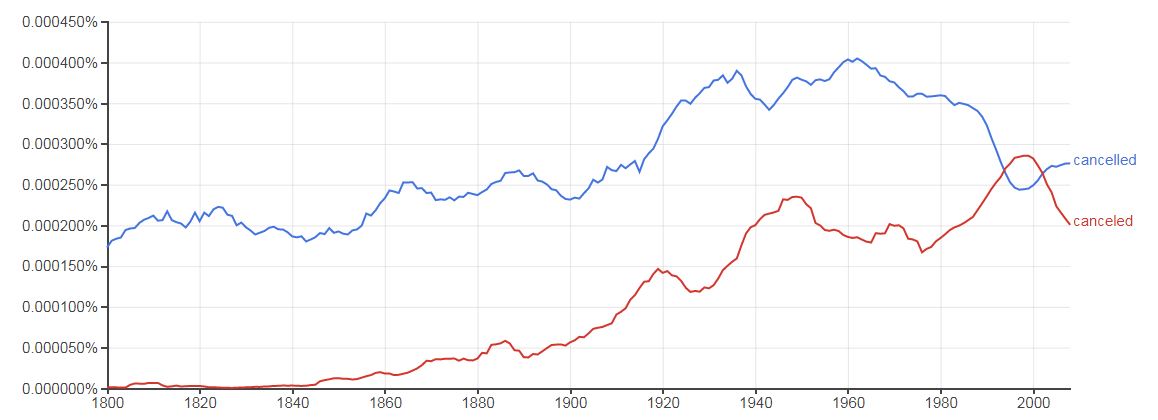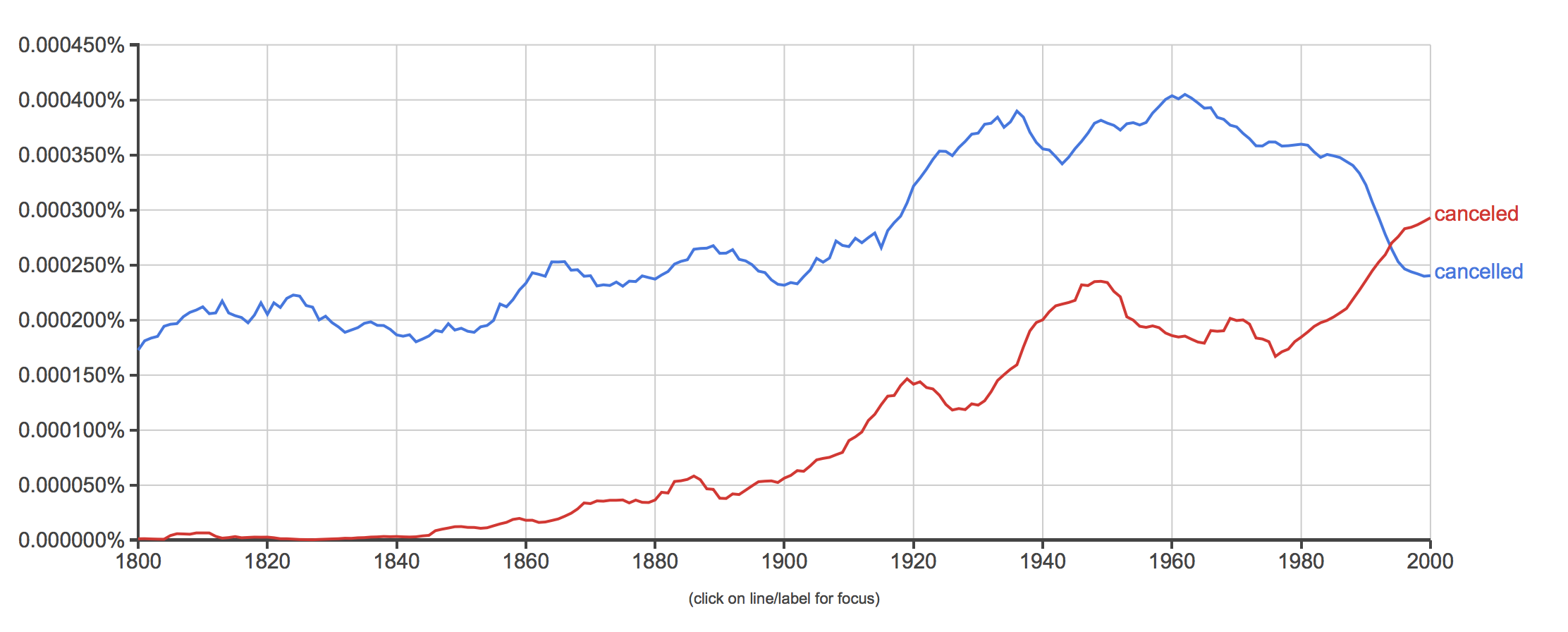I am confused about the spelling of the past tense of the verb "cancel". I googled a bit but everyone has a different opinion apparently. I need to know the correct standard spelling.
-
4They are both standard; the version with doubled 'll' is more common in BrE and that with single 'l' is more common in AmE. See this question– StoneyB on hiatusCommented Mar 10, 2016 at 0:21
-
1This reference from the BBC Suffix spelling rules: double letters lists four main rules regarding these kinds of suffixes. For this word, #2 mostly applies, but it could also fall under #4 (2nd example) depending how you place the stress.– user3169Commented Mar 10, 2016 at 1:14
-
Cancelled is British English; Canceled American.– Ram PillaiCommented May 25, 2020 at 0:36
-
2StoneyB is mistaken. In BrE, the single L forms are usually considered non-standard. It isn't simply a matter of frequency.– rjpondCommented Aug 31, 2020 at 9:04
2 Answers
I beg to differ with Peter's answer.
-l- vs -ll-:
Both versions (-l- and -ll-) are correct and acceptable (when it comes in stressed syllable).
Modeling, canceling and traveling are more common the in U.S. (-ll- is also used and acceptable in the U.S.) while modelling, cancelling and travelling are most commonly used in the UK and many other regions (-l- is also used and acceptable in the UK)
Doubling final consonants:
Explanation of -l- and -ll-:
In stressed syllable:
Consonants usually get doubled in stressed syllables.
When l is a part of stressed syllable, it gets doubled in both American English and British English.
Examples:
- Control -> controlling -> controlled.
(ll in both AE and BE because l is a part of stressed syllable).
- Patrol -> patrolling -> patrolled (l is a part of stressed syllable).
In unstressed syllable:
Consonant in unstressed syllable does not usually get doubled.
Example:
- Target -> targeting -> targeted (here t is a part of unstressed syllable so it does not get doubled.)
The l in 'travel' is a part of unstressed syllable so it does not get doubled in present participle and past participle.
- Travel -> traveling -> traveled.
However, in British English and many other dialects of English, the final l gets doubled even if it's a part of unstressed syllable.
Examples:
- Label -> labelling -> labelled
- Travel -> travelling -> travelled
- Model -> modelling -> modelled
(Here the l is a part of unstressed syllable yet it gets doubled.)
After digraphs and diphthongs:
The -l- after a digraph or a diphthong does not usually get doubled in both AmE and BrE.
Examples:
- Prevail -> prevailed not prevailled.
- Detail -> detailed not detailled.
- Mail -> mailed not mailled.
- Rile -> riled not rilled.
- File -> filed not filled.
Google Ngram results:
According to Google Ngram, cancelled is much more prevalent than canceled.
Summary:
British English:
- travel -> travelling - travelled.
- label -> labelling - labelled.
- cancel -> cancelling - cancelled.
- model -> modelling - modelled etc.
American English:
- travel -> traveling - traveled.
- label -> labeling - labeled.
- cancel -> canceling - canceled.
- model -> modeling - modeled etc.
However, both forms are used in both AE and BE.
There may be exceptions, however.
As @StoneyB points out, both are correct.
Having been taught that a single consonant at the end of a word would make
canceled be pronounced as "can-sealed" and a double consonant would make
cancelled be pronounced as "can-selled", I use cancelled even though the present tense is spelled cancel.
Google Ngrams shows (for what it's worth):
Clearly canceled has over taken cancelled, but that may be an artifact of the influence of US media (Friends, Sex in the City, Batman, Superman, Star Wars vs Only Fools and Horses, Upstairs Downstairs, Yes Prime Minister, Eastenders, Dad's Army) on English language programming consumption.
-
3This answer fails to address the difference between AmE and BrE (covered in DecapitatedSoul's answer), and the final paragraph only makes sense with the tendentious assumption that only BrE = English. Commented May 24, 2020 at 20:34


